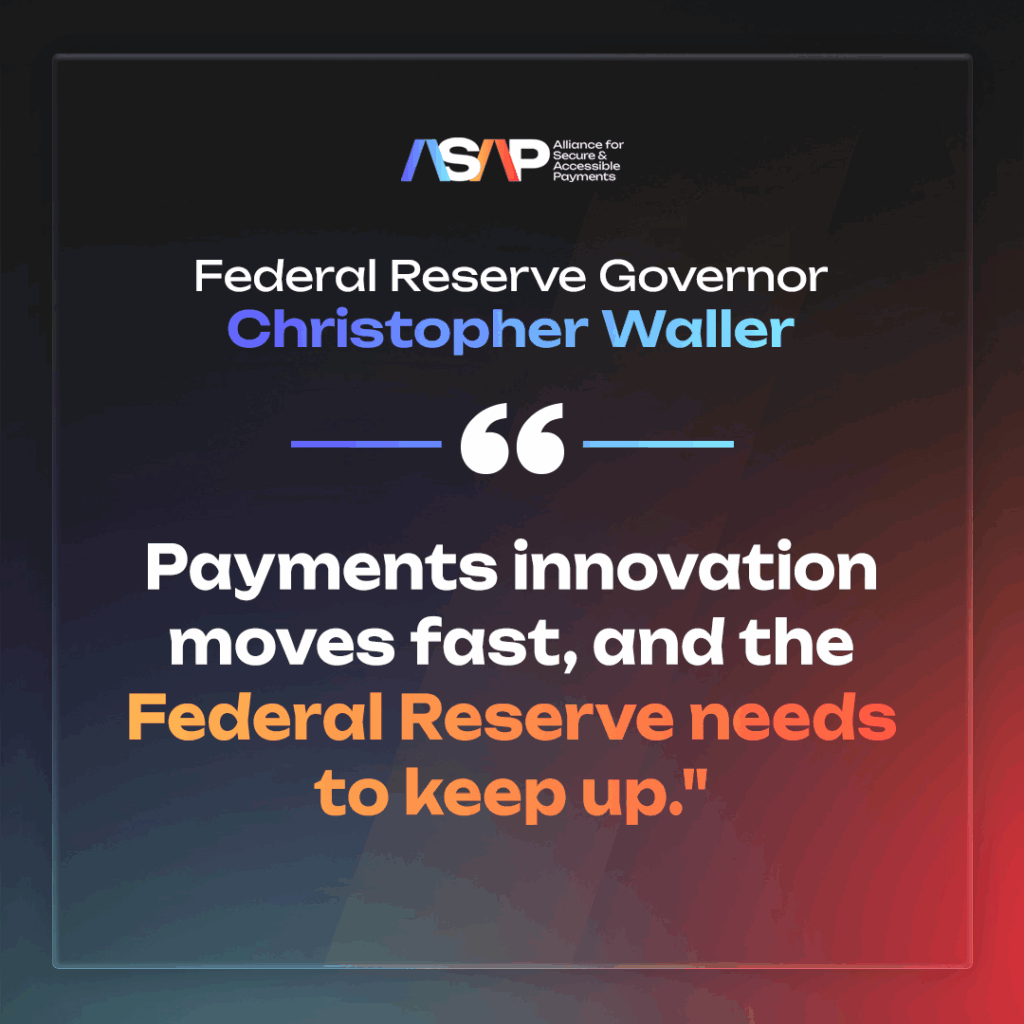Waller’s “Payment Account” Proposal Marks Progress Towards Needed Payments Charter
Last week, Federal Reserve Governor Christopher Waller announced that he is asking the Fed to explore a new “skinny master account” which would allow non-bank firms to access the Federal Reserve’s payment rails directly. This unprecedented move represents an important step toward modernizing America’s payments infrastructure and increasing competition in a system that has long favored the big bank monopoly.
Recognizing the Need for Change
In his remarks, Waller acknowledged that today’s system leaves many responsible innovators without a clear path to participate. That recognition underscores a growing consensus: the U.S. payments system is out of date. By exploring new forms of Fed access, the Board is signaling that innovation and financial stability can, and should, coexist.

A Step Toward Modernization
Governor Waller’s proposal marks another milestone in the broader movement toward payments modernization. Opening up access to the Fed’s systems would help reduce costs, improve resilience, and promote fair competition in a market where new entrants too often depend on costly intermediaries.
Congress Must Take Advantage of this Momentum
Congress can cement these reforms and more by establishing a payments charter, giving non-bank payment providers direct Fed access under appropriate supervision that ensures consumer security.
By acting now, Congress can build on the momentum created by Governor Waller’s announcement and deliver a lasting framework that makes America’s payments system faster, safer, and more competitive.


